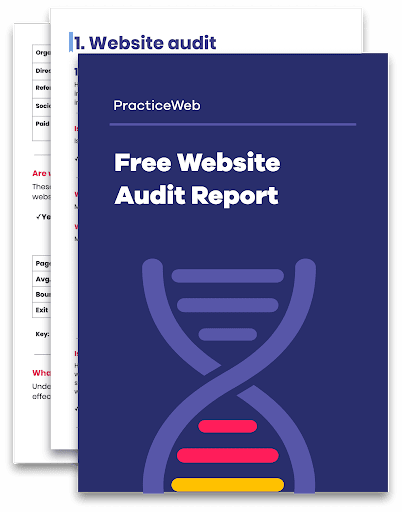Our latest piece of research into SME attitudes confirms what we all suspected: during a crisis, especially one which locks us all behind closed doors, good communications are vital.
The full report, produced in partnership with brand consultancy Insight 101, is another in our series of check-ins designed to give up-to-date insight into how SMEs feel right now.
This time, we wanted to understand the extent to which owner-operators felt their accountants had met their needs during the peak of the COVID-19 crisis.
Did they live up to the promises their brands made? Did the support they provided improve their reputations, or damage them? And did they communicate enough, in the right ways?
These questions aren’t just academic. Understanding this stuff is how you go about embedding the best of the past three months in a sustainable communications strategy.
What our statistics reveal is that performing well under pressure doesn’t go unappreciated. It impresses clients and wins their loyalty – even those who might previously have been thinking of moving on.
Being there for them when they needed you – when it counted – is already paying off.
Equally, it’s hard not to wince when you read that at the time of our survey, in mid to late May, 7% of SMEs hadn’t heard from their accountant at all, while others had received only emails.
A sustainable strategy
This wasn’t the first crisis and won’t be the last. Whether it’s another round of lockdown, another pandemic, a difficult Brexit process, a serious recession or climate change, you can be sure there’ll be more turbulence in the coming years and decades.
Even as we start to ease ourselves out of a state of permanent emergency, accountants need to learn from this most recent experience to equip their practices to handle whatever comes next.
Many accountants reading our report are likely to have one of two reactions:
- I did the right things – I should keep doing them.
- I got this wrong – how do I change?
If you’re in the former group, it’s about retaining the best aspects of your new ways of working and embedding them as a permanent part of your company culture.
And if, unfortunately, it’s the latter, it’s about analysing what might have made the past few months both easier for you and more satisfying for your clients.
One key point is that although we’re talking about human connections here, technology has a key role to play.
Show your face
We’ve all had to get better at video-conferencing and the PracticeWeb team has spoken to lots of accountants who’ve become real converts.
The technology is much better than it was a few years ago and allows for a version of that all important face-to-face connection without the hours stuck in traffic, on trains or in airport lounges.
New etiquette has emerged, too: apparently it’s almost considered rude now to deactivate your camera in one-to-one meetings. Eye-to-eye contact, even if it is mediated by lenses and screens, is important.
So use Google Meet, FaceTime, Zoom or whichever platform works for you. Let your clients see your face. And take the opportunity to look them in the eye and express your support.
Connecting is a process
In practice, it’s almost impossible for an accountant with hundreds of clients to remember the ins-and-outs of every business they work with.
A decent customer relationship manager (CRM) package turns that into a process, taking the pressure off you as an individual.
It also helps prioritise clients – those who want and need lots of care and personal attention should get it, while those who would rather not be bothered until it’s time for their tax return can be left alone.
Our assumption – something we’d like to dig into in another round of research – is that accountants who didn’t contact clients have been let down by their processes and systems.
Perhaps they tried to contact people but didn’t have up-to-date information on file.
Or maybe they’re still operating from a Rolodex on the desk and don’t have a quick, easy way to contact clients by email.
Hopefully this will prompt firms which haven’t adopted CRM software, such as that developed by our partner Senta, to look into it.
This kind of package is by far the easiest way to automate and systematise client communications, taking pressure off your team.
It also makes it easy to record information on interactions with clients so you’ll always know things like:
- When you last spoke to them or emailed them.
- How they prefer to be contacted.
- And what was worrying them last time you made contact.
More and better content
As passionate advocates of the power of content marketing, we’ve also been pleased to see accounting firms step up the volume and quality of their posting.
That there’s been plenty to talk about has helped but, honestly, there’s always is, if you take a bit of time to plan.
Even if it’s not sustainable to keep posting every single day, as many in the industry found themselves doing in late March and early April, posting once a week or twice a month ought to become a habit from now on.
Content helps create human connections in various ways.
First, it provides insight into your firm’s personality and values. It lets people hear your unique voice, talking about businesses like theirs and demonstrating loyalty to the region where you operate.
Secondly, it invites a dialogue. The point of most blog posts on accounting websites is, ultimately, to get potential clients to get in touch for the first time, or to encourage existing clients to engage.
And when you share those posts on social media, you offer a quick, easy way for clients to connect by liking, sharing or commenting.
Don’t be afraid to be human
Technology can communicate your firm’s personality but only you know what you really stand for.
Websites, social media and blog posts need to tell a story about your firm and what clients can expect when they choose to work with you.
It’s interesting that 44% of respondents to our survey didn’t feel able to say they felt their accountant had lived up to their firm’s brand values.
What that means is that the identity presented by those accountancy practices didn’t match the attitudes and behaviour of their staff.
To counter that, you need to take some time for introspection – to really dig into your brand values and purpose as a business.
You might also need to review your approach to leadership: if your team isn’t with you on the journey, your clients will feel the disconnect.
Read the full report and get in touch to talk about your digital communications strategy.
Like and share using the buttons below.




